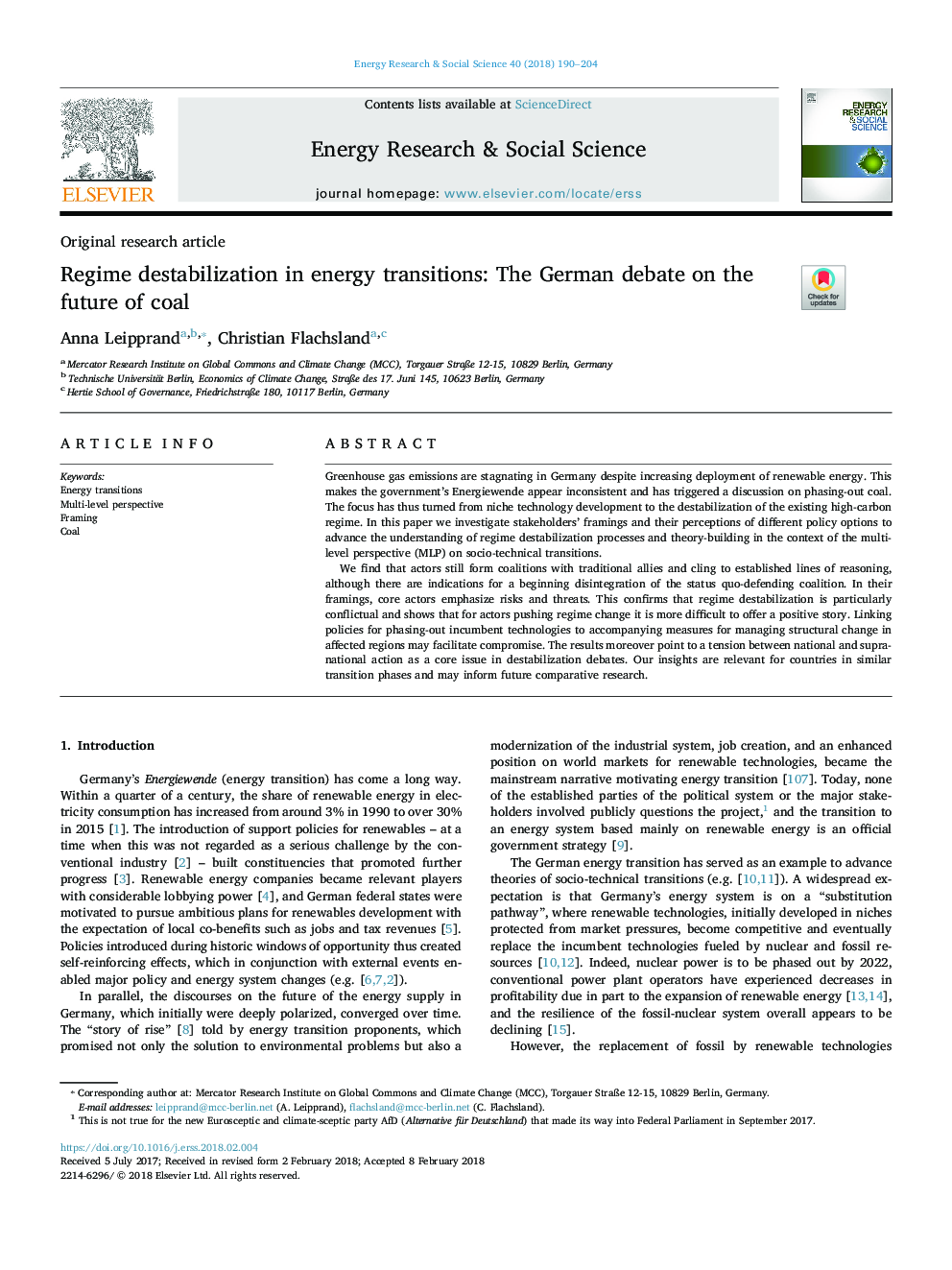| Article ID | Journal | Published Year | Pages | File Type |
|---|---|---|---|---|
| 6557513 | Energy Research & Social Science | 2018 | 15 Pages |
Abstract
We find that actors still form coalitions with traditional allies and cling to established lines of reasoning, although there are indications for a beginning disintegration of the status quo-defending coalition. In their framings, core actors emphasize risks and threats. This confirms that regime destabilization is particularly conflictual and shows that for actors pushing regime change it is more difficult to offer a positive story. Linking policies for phasing-out incumbent technologies to accompanying measures for managing structural change in affected regions may facilitate compromise. The results moreover point to a tension between national and supra-national action as a core issue in destabilization debates. Our insights are relevant for countries in similar transition phases and may inform future comparative research.
Related Topics
Physical Sciences and Engineering
Energy
Energy (General)
Authors
Anna Leipprand, Christian Flachsland,
